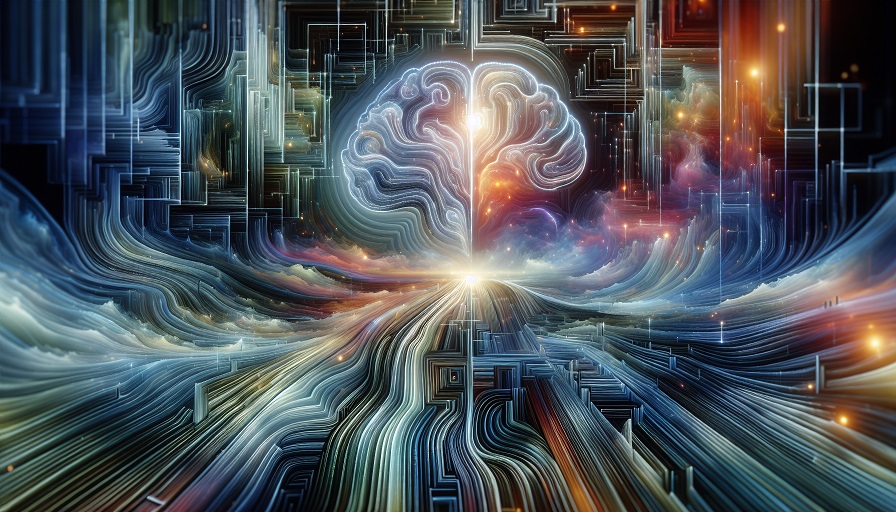
Artificial intelligence gets a lot of attention these days for its raw power. Machines can calculate faster than any human, scan massive datasets in seconds, and generate outputs that look impressively creative. But here’s the truth: biological brains still outperform artificial ones in the areas that matter most. Human cognition brings creativity, adaptability, emotional depth, and meaning into the equation – qualities no machine can replicate. Neuroscience shows that the human brain is not just a processor; it is a living, flexible system shaped by experience and fueled by imagination. And that’s why, even in the age of supercomputers, your brain still leads the way.
Contents
The Limits of Artificial Intelligence
Before celebrating the human brain, it’s worth recognizing what AI does well – and where it falls short. Machines are designed to process information quickly and accurately, but their “intelligence” is not the same as human cognition.
Pattern Recognition Without Understanding
AI systems excel at recognizing patterns and producing outputs based on data. They can generate text, images, and music, but they don’t understand the meaning behind their creations. For machines, it’s math – not insight.
No Genuine Creativity
What looks like creativity in AI is simply remixing. It recombines existing data in novel ways but cannot generate ideas beyond what it has already been fed. Human creativity, on the other hand, leaps into the unknown.
Lack of Context and Common Sense
AI often fails at simple tasks requiring real-world knowledge or common sense. Humans automatically grasp nuance, irony, and context. Machines struggle without precise programming or massive data inputs.
The Strengths of the Human Brain
The brain’s power doesn’t come from raw processing speed – it comes from versatility, imagination, and meaning-making. These qualities keep humans ahead, no matter how fast machines get.
Creativity and Originality
Neuroscience shows that creativity emerges from brain networks like the default mode network, which sparks connections between distant ideas. Humans imagine, invent, and create meaning. Machines cannot generate purpose-driven originality.
Adaptability Through Neuroplasticity
The human brain constantly rewires itself in response to experience. Whether learning a new skill or adapting to change, neuroplasticity ensures flexibility. AI requires engineers to retrain models – your brain retrains itself naturally.
Emotional Intelligence
Emotions are integral to human intelligence. Empathy, compassion, and social connection shape decision-making and creativity. Machines simulate responses, but they cannot feel. Emotional depth remains uniquely human.
Purpose and Meaning
Humans don’t just act – they reflect, question, and seek meaning. The brain integrates personal history, culture, and values into every choice. AI lacks self-awareness, identity, or purpose. It outputs, but it doesn’t care.
Why Brains Outperform Machines in Real Life
In practice, humans outperform AI in areas where context, creativity, and flexibility matter most. These strengths give people the edge in problem-solving, innovation, and leadership.
Problem-Solving Beyond Data
AI can optimize within set parameters, but humans redefine problems altogether. From inventing the wheel to imagining space travel, breakthroughs emerge from reimagining possibilities – not just refining them.
Collaboration and Relationships
Workplaces thrive on trust, empathy, and communication. Leaders who motivate, inspire, and connect bring value that machines cannot replace. Emotional intelligence is a competitive advantage no algorithm matches.
Innovation and Risk-Taking
Humans take risks, follow intuition, and innovate without guarantees. AI sticks to probabilities and safety nets. Many groundbreaking discoveries – from art to science – arose from bold leaps only humans could make.
How to Optimize Your Brain’s Competitive Edge
To stay ahead in a machine-powered world, it’s essential to invest in your brain. Optimizing focus, creativity, and resilience ensures you continue to outperform even the smartest systems.
Fuel Your Brain With Nutrition
- Omega-3 fatty acids: Support memory and cell health.
- Antioxidants: Protect neurons from oxidative stress.
- Balanced hydration: Prevents brain fog and fatigue.
Exercise for Cognitive Strength
Physical activity increases oxygen and blood flow to the brain. Exercise stimulates neuroplasticity and enhances mood, giving your brain both resilience and adaptability.
Protect Rest and Recovery
Sleep consolidates learning and clears toxins from the brain. Skipping rest reduces memory, focus, and problem-solving capacity, leaving you less competitive against machines.
Cognitive Support
Brain supplements and nootropics provide added support for focus, energy, and clarity. While not substitutes for healthy habits, they help maintain high performance in demanding environments.
Case Studies: Brains vs. AI in Action
Healthcare
AI scans images faster than radiologists, but doctors provide context, empathy, and judgment. Patients trust human care because it combines knowledge with compassion.
Education
AI generates lessons, but teachers inspire curiosity and motivation. The brain’s ability to connect emotionally keeps education meaningful.
Entrepreneurship
AI analyzes markets, but entrepreneurs imagine entirely new industries. Risk-taking and vision remain beyond the reach of machines.
Practical Habits to Stay Ahead
- Practice creativity: Engage in brainstorming, art, or writing to strengthen originality.
- Stay curious: Learn continuously to keep your brain adaptable.
- Build emotional skills: Develop empathy and connection – areas AI cannot compete in.
- Balance work with rest: Protect focus and energy for long-term brain health.
Artificial intelligence is fast, precise, and powerful. But biological brains still outperform artificial ones because they bring creativity, adaptability, emotion, and meaning into the mix. Machines may generate, but they cannot imagine. They may calculate, but they cannot care. By optimizing your brain’s health and sharpening its unique strengths, you ensure that even in an AI-powered world, human intelligence remains unmatched. The future belongs not to the fastest processor, but to the most adaptable and imaginative mind.

